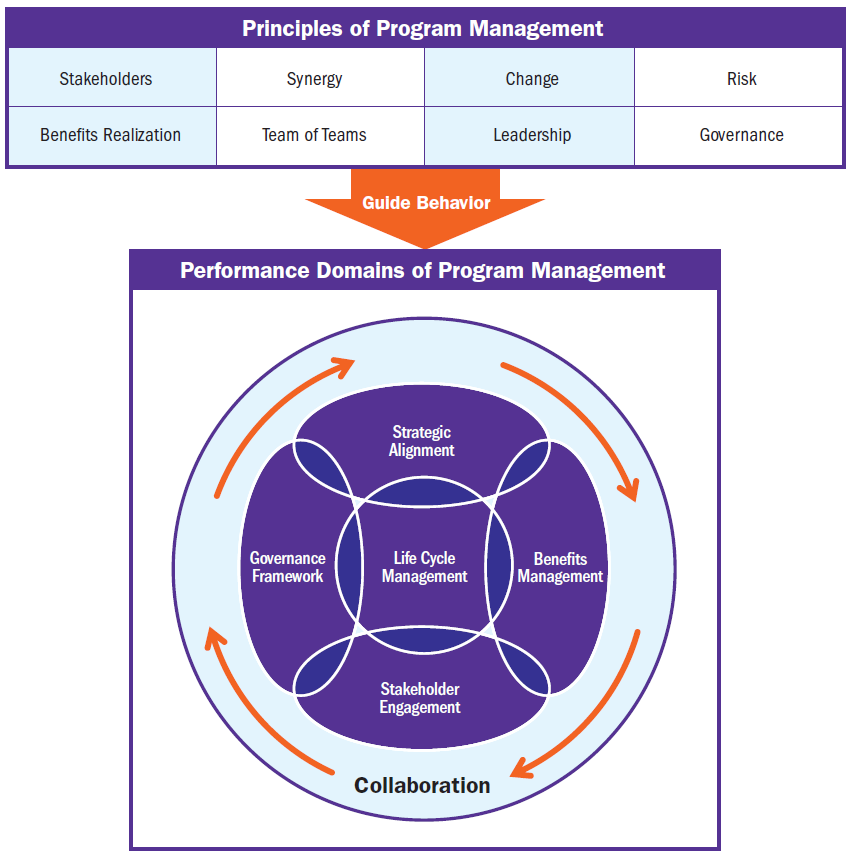
In the arena of program management, principles serve as beacons of knowledge, proven practices, and accumulated wisdom. These principles act as foundational guidelines for strategy, decision-making, and problem-solving. They represent fundamental norms, truths, or values and cover a wide variety of disciplines. Program professionals and stakeholders have abundant opportunities to align with these principles and can influence their implementation and adherence throughout a program’s life cycle.
The PgMP program management principles are:
- Stakeholders: Engage stakeholders at a level commensurate with their impact on or contribution to the program’s success.
- Benefits Realization: Consistently focus on program outcomes aligned with organizational strategy.
- Synergy: Use a structured approach that blends portfolio, program, and project management practices to enable the program to accomplish more than its individual components could alone.
- Team of Teams: Integrate a team structure to create a network of relationships across components, enhancing adaptability and resilience.
- Change: Embrace change with an overall focus on program benefits realization.
- Leadership: Motivate and unite the program team to maintain the program’s delivery pace and realize expected benefits.
- Risk: Effectively manage program risks to ensure alignment with the organizational strategy.
- Governance: Establish and adopt a proportionate and appropriate governance framework to control the program as necessary.
Please note: Read The Standard for Program Management from the beginning to section 2.1 “Stakeholders” before starting to learn these principles.
Join us in helping others achieve PgMP certification!
Feel free to share any valuable books, videos, articles, or tutorials related to learning the PgMP Program Management Principles in the comments below.
